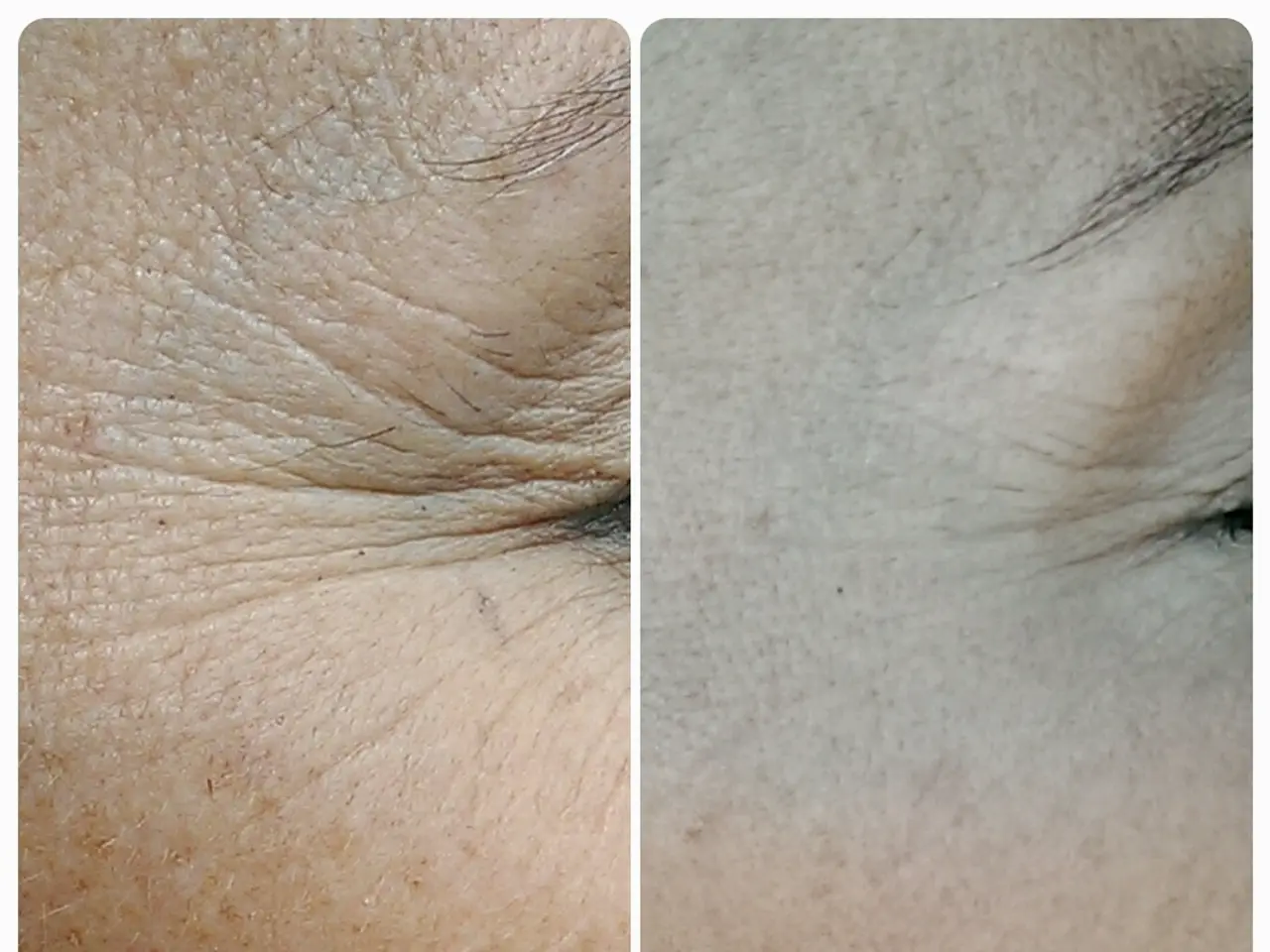Methods and Strategies for Unclogging Pores: Therapies and Methods
Preventing and treating clogged pores is a combination of skincare routines, lifestyle adjustments, and professional treatments. Here's a guide to help you keep your pores clear and healthy.
### Skincare Routines
Regular cleansing is essential. Use a gentle, pH-balanced cleanser twice a day to remove dirt and oil without stripping the skin of its natural moisture. Exfoliate two to three times a week using chemical exfoliants like Salicylic Acid or Glycolic Acid to clear dead skin cells and prevent buildup. Toning can help balance the skin's pH and remove any remaining impurities. Moisturize with lightweight, non-comedogenic moisturizers that hydrate without clogging pores. Look for ingredients like Hyaluronic Acid or Aloe Vera.
### Lifestyle Adjustments
A balanced diet rich in fruits and vegetables and avoiding high glycemic index foods can help prevent clogged pores. Staying hydrated also keeps the skin and pores clear. Always remove makeup before sleeping to avoid clogging pores.
### Professional Treatments
Microneedling stimulates collagen production, helping to minimize pore appearance and improve skin texture. Chemical Peels, such as the VI Peel, can help exfoliate deeper layers of the skin, unclogging pores.
### When to Consult a Dermatologist
If acne or clogged pores persist despite home treatments and lifestyle changes, it's time to consult a dermatologist. Severe symptoms like inflammation, redness, or deep cysts also warrant a visit to a dermatologist. If you have active skin conditions such as eczema or psoriasis, which may require specialized care, a dermatologist's advice is invaluable. If you're unsure about the cause of your clogged pores or how to treat them effectively, consulting a dermatologist can provide personalized advice and treatment options tailored to your specific skin concerns.
Remember, clogged pores can lead to acne, hyperpigmentation, scarring, and emotional distress for some people. Prevention and treatment are key to maintaining healthy, clear skin. Keep your skin clean, moisturized, use noncomedogenic products, remove makeup before sleep, avoid touching the face, exfoliate, and use an oil-free sunscreen to prevent clogged pores. Skincare products for clogged pores can be purchased in drugstores or online, including gentle cleansers, salicylic acid products, and retinol products.
Products containing retinol or retinyl palmitate can help improve skin elasticity and reduce pore blockages. Starting with a lower strength retinol product is advisable, and it should be used before bed to minimize potential skin irritation. Retinol is a recommended skin care ingredient for people with mature, oily, or acne-prone skin. Decreased skin elasticity, increased sebum production, and certain ethnicities can make it more likely that pores will become clogged.
Charcoal face masks and pore strips are not scientifically proven to effectively treat clogged pores. Acne is the most common skin condition in the United States, affecting about 50 million people each year. A dermatologist can examine the skin and recommend a treatment tailored to the person's skin type and needs, which may include medication and skin care products. Comedogenic products, such as makeup, sunscreen, and lotions, can potentially block pores.
Pregnant or breastfeeding women should not use retinol. Pores are tiny holes in the skin that allow oil to reach the surface. Clogged pores occur when sebum, a natural oil produced by glands on the face, becomes trapped inside pores along with dead skin cells. Acne can produce several types of blemish, including blackheads, whiteheads, pimples, and cysts.
By following these guidelines, you can effectively treat and prevent clogged pores, maintaining a clear, healthy complexion.
- Incorporate dermatology's predictive science into your health-and-wellness routine by using skincare products formulated for clogged pores, such as those containing Salicylic Acid or Retinol.
- A balanced diet and regular exercise, part of fitness-and-exercise and education-and-self-development, can help prevent depression caused by poor skin health and self-image.
- Proper skincare routines can aid in preventing obesity-related health issues, such as diabetes and hypertension, by reducing inflammation and promoting overall skin health.
- In addition to skincare, consider mental health treatments like therapy or medication for depression or bipolar disorder as part of your personal growth journey.
- Educate yourself on the science behind skincare by researching the benefits of ingredients like Aloe Vera and Hyaluronic Acid, enabling you to make informed decisions about your skincare products.
- Incorporate AQ (Advanced Quaternary Ammonium Compounds) into your skincare routine to provide an extra layer of protection against harmful bacteria, promoting healthy skin.
- Develop a holistic approach to skincare by combining professional treatments like microneedling with lifestyle adjustments, such as using a humidifier for added skin moisture and reducing stress for emotional well-being.




